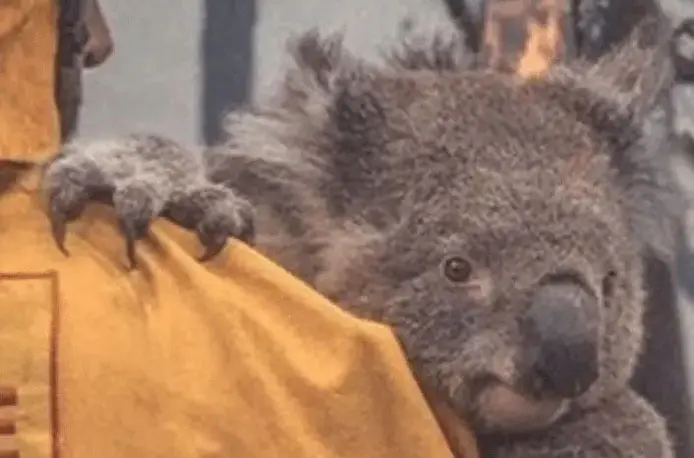They sparked in September, and as bushfires ravaged our country over the summer holiday period businesses across Australia sprang into action. Along with sports stars, artists, actors, musicians, restaurateurs and international celebrities, the big end of town weighed in with donations. From corporates and public behemoths to boutique operations and family-owned foundations, they have so far donated tens of millions of dollars to provide assistance for volunteer firefighters, emergency services personnel and fire victims.
Money Spinners
Tech entrepreneurs Mike Cannon-Brookes and Scott Farquar, co-founders of Atlassian, have each donated 1 million, as have shopping centre owner and billionaire John Gandel and his philanthropist wife Pauline. Anthony Pratt, owner of Visy Industries, has also promised $1 million. And Merivale’s Justin Hemmes donated $500,000. The Paul Ramsay Foundation “set aside $30 million” to support bushfire affected communities. The Packer Family Foundation and the Crown Resort Foundation donated $5 million. The National Australia Bank is putting $5 million towards the recovery effort, while Coles is donating $4 million and BHP $2 million. Then WA mining billionaire Andrew “Twiggy” Forrest announced in January that he would offer up $70 million through his Minderoo Foundation. “This is a disaster and the Minderoo Foundation and my family will react to the scale of the disaster,” he said. “I think we do what we can, I’m very fortunate to chair a large Australian public company,” he said, referring to mining company Fortescue Metals Group. “I think, as a company, leading by example is more important than preaching to people.” At community level, Central Coast hotel Bells at Killcare pledged to donate all profits from accommodation bookings during the month of January to the nearby Walkabout Wildlife Park’s work caring for injured and displaced wildlife. Meanwhile more than 35 chefs from Sydney’s top restaurants banded together under the banner Cook for the Bush to hold fundraising brunches, lunches, bake sales and a silent auction with 100 % of all proceeds going to the Australian Red Cross. “For weeks I’ve been wondering what I could do to help with the bushfire emergency so I started texting people and the response was overwhelming,” Nomad chef Jacqui Challinor said at the time. “Now it’s just a question of how big we can go.”
Care Factor
As a national crisis of epic proportions, the bushfires are the most potent example of a powerful new movement: business for good. Sparked by despair and fanned by altruism (and no doubt reciprocal altruism) a goodness revolution is taking place, not just in Australia but around the world: businesses see that participation through charities and philanthropy is not only good for society, it is good for staff morale. Crucially, it can also boost the bottom line. The rise of conscious capitalism and the “triple bottom line” is borne out by statistics. A Philanthropy Australia report shows that in 2015-16 Australian businesses gave $17.5 billion, which comprised $7.7 billion in community partnerships, $6.2 billion in donations and $3.6 billion in non-commercial sponsorships. It also found businesses prefer to give money (66% of total giving) rather than goods (17% of total giving) and services (18% of total giving), and that even though they only make up 0.2% of Australia’s business population, larger companies are more likely to give and in larger amounts ($9 billion for 0.2% of businesses) compared to small to medium size businesses ($8.5 billion).
A Mutual Return
Giving makes sound commercial sense. Conscious capitalism can lead to business breakthroughs according to a research by Ernst & Young, which found that organisations that demonstrate a higher purpose are in a better position to innovate, with 63% of executives believing that having a sense of purpose made them a more innovative company. The same study found that positive purpose also has a beneficial impact on the bottom line, noting “purpose-driven companies experienced an increase of 20% in sales and 6% in share price.” The ranks of B Corporation-certified businesses across the globe are swelling – that is businesses that balance purpose and profit. To obtain certification these businesses must demonstrate that they make a positive impact to workers, customers, suppliers, community and the environment, meeting stringent standards of social and environmental performance, public transparency and legal accountability. Local B Corps include banks, architecture firms, furniture companies, organic food operations and outdoor adventure brands.
Customer Loyalty Goes Both Ways
Doing good also resonates with customers, with a study by Edelman and Young & Rubicam finding 87% of consumers expect businesses to care about their impact on the society as much as they care about their own businesses, and noting more than 70% of them intentionally purchased from businesses whose values were similar to their own. The study revealed that 82% of customers are positively affected by a company’s engagement in philanthropic actions, a conclusion shared by Australian hairdresser and businessman Kevin Murphy. The entrepreneur behind his eponymous and highly successful product line sold around the world is converting the packaging for his hair care products from plastic to 100% reclaimed ocean plastic waste, which will save a projected 360 tonnes of plastic from the ocean each year, and says the debut of the first packaging in June 2019 is already resonating strongly with customers. “Customers need to be able to have the choice of supporting a company that does good or one that does not and nine times out of 10 they will choose the company that’s doing good,” says Murphy. “Most people want to do the right thing and are happy to buy a product while doing good at the same time.” Murphy’s experience tallies with research that suggests being part of a generous workplace is more rewarding than fronting up each day at one that is not, and can improve the morale and productivity of workers. “Working for good increases employee satisfaction because people can feel positive about their job in a company that has a higher purpose,” he says. “We have a very high retainment of staff because they want to work at a company doing good things.” Whether its reducing plastic waste, working to combat climate change or fighting social inequality, in many cases business is now leading the push for positive change where our government is not. “In the past our governments used to take care of the problem for us, but now we are realising they are not,” says Murphy. “Having zero climate change policy is just one example… companies now need to be socially responsible on behalf of their customers in the absence of the traditional role played by government.” In another excellent example, Melbourne developer Assemble is pioneering an innovative affordable housing model – stepping into a policy void to help make the housing market more accessible to first-home buyers. Under Assemble’s rent-with-the-option-to-buy model, residents are allowed to lease their homes for five years while they save the money to buy them. Both rental and purchase price are fixed, and there’s no obligation to buy, meaning residents can retain the flexibility and independence so often stripped by a million-dollar mortgage. With a focus on well-designed yet affordable housing, the model also allows prospective purchasers to have input at key stages prior to construction, which maximises flexibility and customisation. “It’s about how we address the challenge of continuing to innovate housing solutions while also doing so in an ethical and socially responsible manner,” says Assemble director of culture and strategy Emma Telfer.
A Groundswell of Goodness
Ethical and social responsibility are at the heart of conscious capitalism and the bushfire emergency has highlighted the role Australian companies can play and the benefits of engaging in the business of doing good. As Sir Richard Branson eloquently put it: “How to treat our world is a reflection of our humanity, our intelligence, our conscience and ultimately, our very survival. The way in which we co-exist with our natural environment, strengthen fragile societies, and support vulnerable populations is the very foundation of a sustainable future – business or otherwise.”







